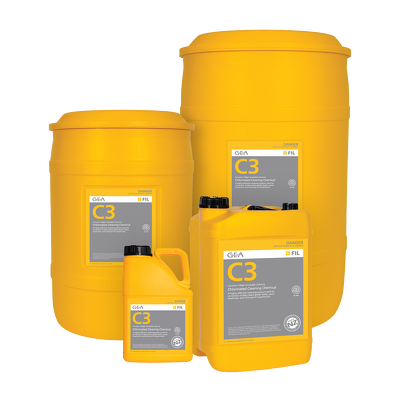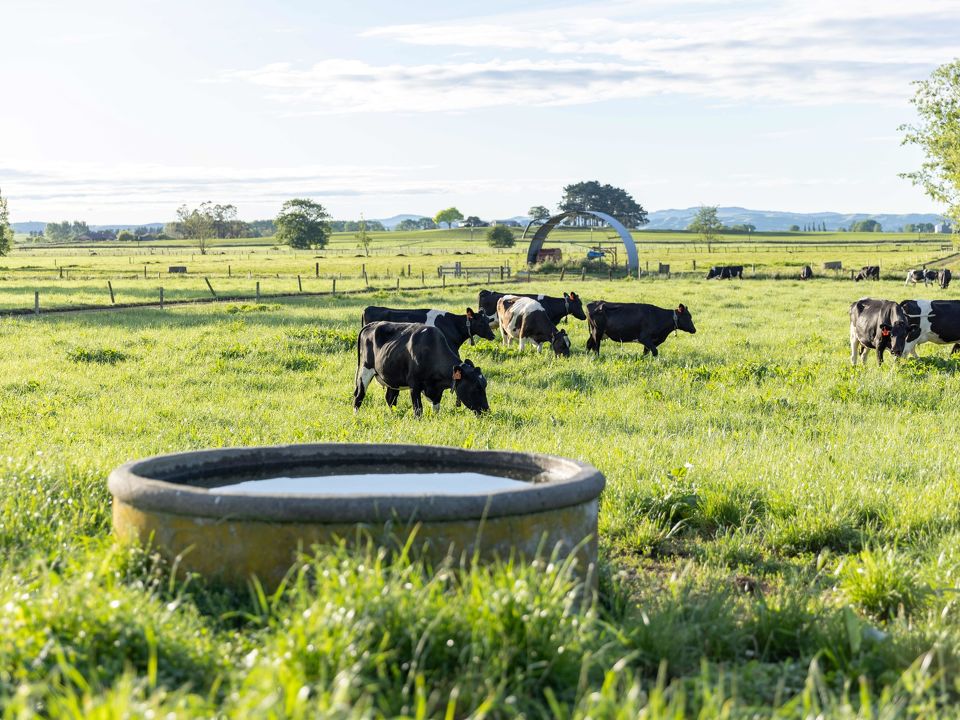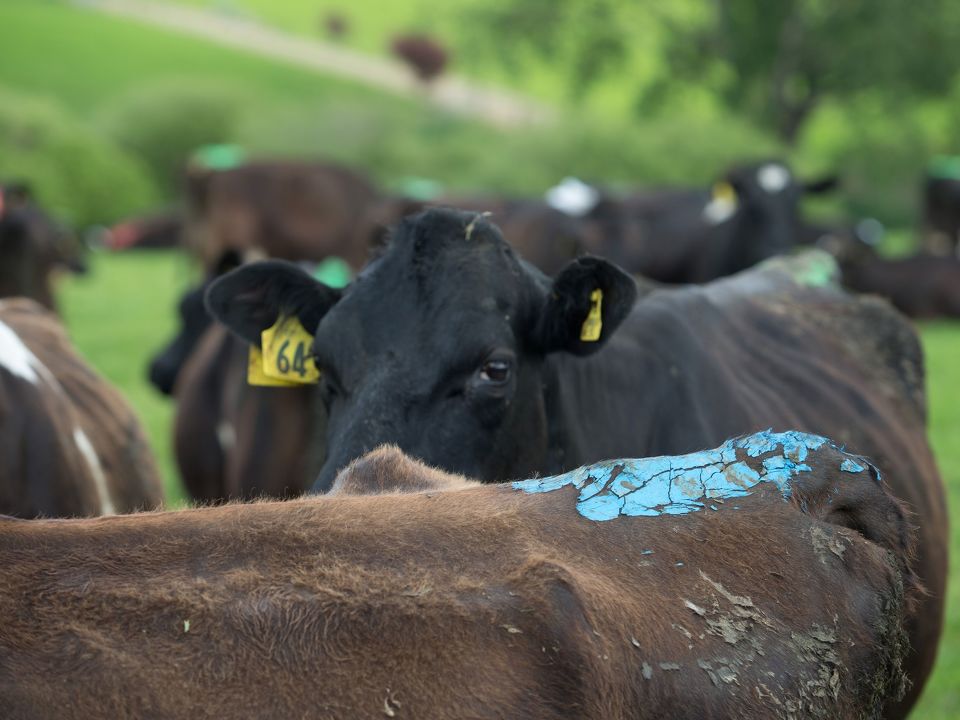The powerhouse powder detergent.
Quantum Powder Alkali cuts through milk fat and protein for a spotless milking plant.
Learn moreFarm-tough, home-safe.
Farm-strength cleaning meets home-safe hygiene with Antigerm disinfectant - kills germs fast and cleans easy.
Learn moreA superior clean, every time.
Quantum Red Acid provides a deep, reliable clean that stands up to any shed or water condition.
Learn moreClean you can count on.
Quantum XL delivers a powerful, residue-free clean that keeps your system performing at its best.
Learn more
Multi-purpose, max strength.
As a high-strength chlorine detergent, C3 works to keep your shed, water and milking equipment pristine.
Learn more
Our Products
Dairy Hygiene
Developed here in NZ, our range of high strength dairy hygiene products help avoid costly grades.
View productsAnimal Markers
Animal markers are one of the most effective and easy to use herd management tools. Containing fluorescent pigments for quick identification.
View productsUdder Health
Healthy cows perform better. Together with New Zealand's leading range of active teat care products, we can help prevent mastitis.
View productsNews and Advice

Bloateze takes the wind out of bloat
1 Sep 2025
FIL can help farmers with cost-effective bloat control and treatment this spring, with a choice of Bloateze or Bloateze DFA.
View
Using Stock Iodine 2.5% for iodine deficiency
25 Aug 2025
FIL Stock Iodine is a liquid iodine supplement for the prevention and treatment of iodine deficiency in livestock.
View
Tips for using tail paint during mating
15 Aug 2025
FIL’s tail paint will help to confirm pre-mating heats to ensure a successful heat detection and in-calf rate.
ViewWhat our farmers say
25 Years of Proven Performance on Southland Family Farm
The Kents have been on their Southland farm 2001 and have trusted FIL for nearly 25 years. They stick with what works—quality products backed by service they can count on.
Warrick and Stu Kent - Southland
How teat spray tech transformed Ryan Wilson's milking routine
By fully automating his teat spray routine, from mixing to application, Ryan is confident his cows are getting consistent, accurate coverage after every milking without any manual labour from his team.
Ryan Wilson - Waikato
Hard water no challenge for FIL Quantum Red on Northland farm
Kevin Salmon runs a 120-cow dairy operation south of Kaitaia. He purchased the 80-hectare dairy farm a decade ago and hasn’t faced many major hygiene issues in the dairy shed, except for one persistent challenge: high iron levels in the water.
Kevin Salmon - Northland
How Tasman contract milkers solved their Thermoduric problem
Stephen Murphy started his contract milking journey in the Tasman region three seasons ago. They’ve been milking 500 cows through a large herringbone, which until recently, wasn’t running a wash through the plant as effectively as it should.
Stephen Murphy & Emma Wills - Nelson - Tasman
Southland dairy farmer achieves first grade-free season after years of persistent hygiene issues
Now in his ninth season on a 370-hectare dairy farm in Southland, James Deans has achieved unexpected success after switching to FIL products, resulting in his first-ever grade-free season.
James Deans - Southland
Sharemilkers on Track to Achieve Milk Quality Targets Through Extra Attention During Calving
South Waikato sharemilkers Ben and Samantha Tippins have found success with their 950-cow herd by focusing on milking procedures, especially during calving. The result? Reduced milking times, fewer mastitis cases, and more milk in the vat.
Ben & Sam Tippins - Waikato
Local support ensures quality milk during a challenging time for Taranaki Sharemilker
Tom Weston, a North Taranaki sharemilker, has been a loyal user of FIL products for 18 years and hasn't considered using anything else. He firmly believes in sticking to what works, especially when it comes to achieving excellent quality milk.
Tom Weston - Taranaki
Matamata dairy farmer upgrades teat spray system to gain control of somatic cell count
With a split calving pattern and four full-time staff, Bryan was finding it difficult to overcome high SCC. A few simple changes were implemented to create consistency around teat spraying, and the SCC dropped from 250,000 to under 150,000.
Bryan Holmes - Waikato
Simple changes make significant improvements for Central Otago farmer
Clinical mastitis cases and SCC levels have dropped significantly after Tim Rivers made small but critical animal health improvements with the help from FIL. This has led to a significant reduction in the use of drugs in the 1,200-cow herd.
Tim Rivers - Otago
Kirstie & Rob of Kirbin Farming reduce mastitis by being proactive with herd health
Prioritising animal health and following best-practice procedures is how Ashburton contract milkers Kirstie and Rob Hornblow have improved results and gained efficiencies.
Kirstie & Rob Hornblow - Canterbury
Teat spray automation brings big benefits on Northland farm
Using an automatic teat spray mixing system has given Northland farmer Travis Parry not only ‘peace of mind’ but has demonstrated that even smaller scale farms will see plenty of big benefits.
Travis & Lisa Parry - Northland
How Oamaru farmer solved a seven-year mastitis problem
“Knowledge is power” says Farm Manager Sarah Smart, who had experienced a high incidence of clinical mastitis for seven years and was treating 20 percent of the herd annually. Today, the herd’s SCC is the lowest it has ever been.
Sarah Smart - Otago
Bellevue Farms: Capturing all of the detail during mating
Dairy farmer Peter Bellamy milks 900 cows in Te Poi with his son Simon, and three other staff. When it comes to heat detection, he sees FIL Detail water-based tail paint as a reliable part of his toolbox.
Peter Bellamy - Waikato
Reliable, safe and cost-effective heat detection
Chris and Vickie Thompson have been farming 250 cows on their low-lying dairy farm in Hinuera for 10 years, following 15 years of sharemilking in the local area.
Chris Thompson - Waikato
“Before we changed to FIL we had a shocking season, with 15 demerits. We decided to make the switch, and it’s been a grade free year, this year.”
Dairy farmer Andrew Sillis switched to FIL last season on the back of 15 demerit points in the previous season. The farm has now been grade-free for a year.
Andrew Sillis - Waikato
Improved teat spray efficiency with the Intelliblend
Canterbury Sharemilker Mark Hutchins highly recommends FIL’s Intelliblend teat spray mixer and delivery system, noting that the herd’s somatic cell count evened out straight away. Plus, their drums of solution are lasting at least a week more.
Mark Hutchins - Canterbury
How Farmer Andrew Hardie managed contagious Staph aureus mastitis in his herd
In 2017, a Herd Screen revealed 130 cows were infected with Staph aureus. This was the start of a journey to reducing and controlling mastitis through a vigilant approach to herd management, pathogen identification and targeted treatments.
Andrew Hardie - Manawatu - Whanganui
Case Study: Jess Hardegger - How to keep your herd clean and clear
Back in 2018, Jess Hardegger had 27 clinical mastitis cases present in just 17 days through the January dry period, the somatic cell count jumped from 70-80,000 to 230-240,000 simultaneously.
Jess Hardegger - Southland